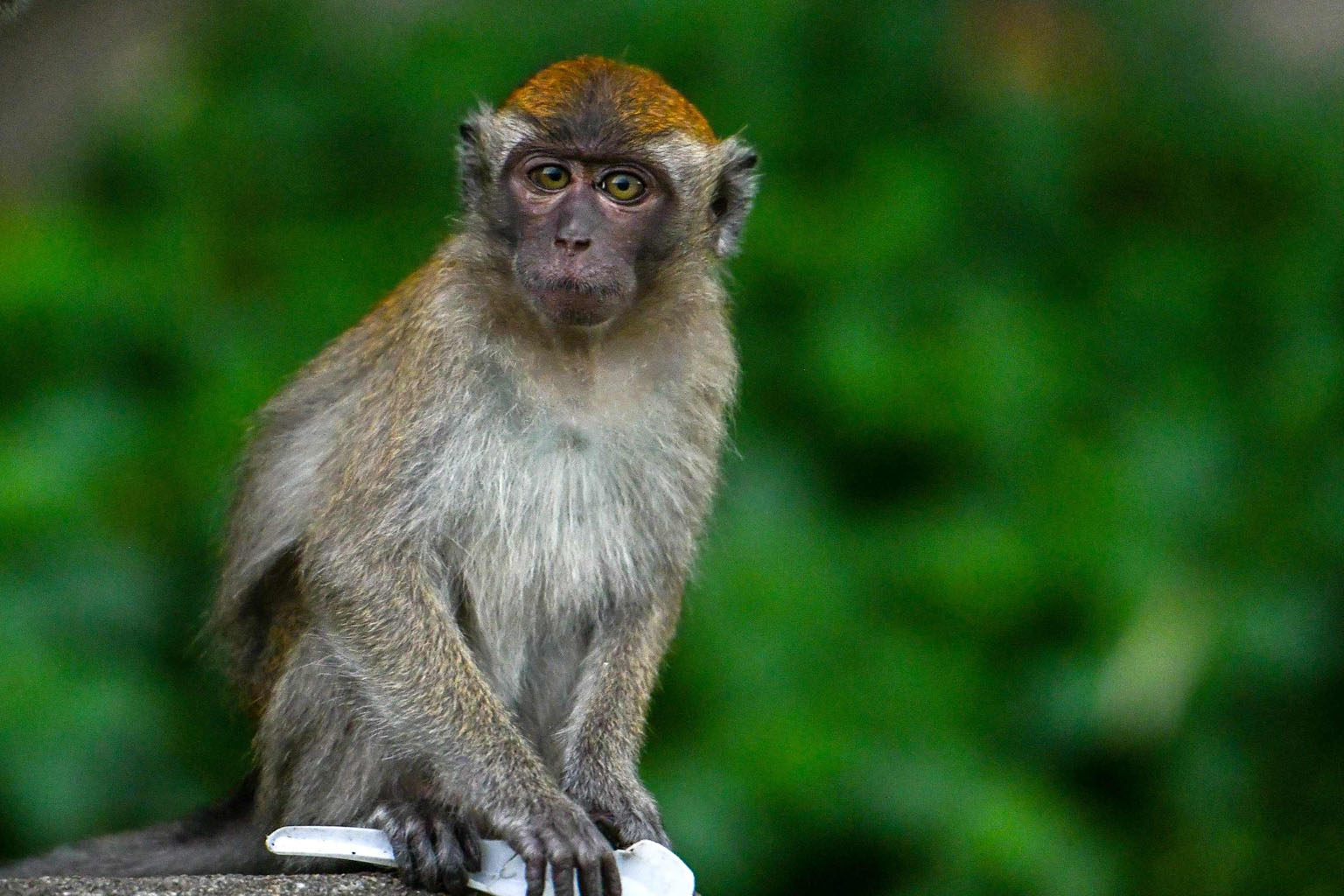Nature loss will result in deadlier future pandemics, UN warns
Human-driven activities make it easier for diseases to jump from animals to people, says report
Sign up now: Get ST's newsletters delivered to your inbox

Up to 850,000 viruses exist in animals and can infect people.
PHOTO: AGENCE FRANCE-PRESSE
PARIS • Future pandemics will happen more often, kill more people and wreak even worse damage to the global economy than Covid-19 without a fundamental shift in how humans treat nature, the United Nations' biodiversity panel has said.
Warning that there are up to 850,000 viruses which, like the coronavirus, exist in animals and may be able to infect people, the panel - known as IPBES - said pandemics represented an "existential threat" to humanity.
Authors of the special report on biodiversity and pandemics said on Thursday that habitat destruction and insatiable consumption made animal-borne diseases far more likely to make the jump to people in future.
"There is no great mystery about the cause of the Covid-19 pandemic - or any modern pandemic," said Dr Peter Daszak, president of the EcoHealth Alliance and chairman of the IPBES workshop that drafted the report.
"The same human activities that drive climate change and biodiversity loss also drive pandemic risk through their impacts on our environment."
The panel said Covid-19 was the sixth pandemic since the influenza outbreak of 1918 - all of which had been "entirely driven by human activities".
These include unsustainable exploitation of the environment through deforestation, agricultural expansion, wildlife trade and consumption - all of which put humans in increasingly close contact with wild and farmed animals and the diseases they harbour.
As much as 70 per cent of emerging diseases, such as Ebola, Zika and HIV/Aids, are zoonotic in origin, meaning they circulated in animals before jumping to humans.
Around five new diseases break out among humans every single year, any one of which has the potential to become a pandemic, the panel warned.
It said in its periodic assessment on the state of nature last year that more than three-quarters of land on Earth had already been severely degraded by human activity. One-third of land surface and three-quarters of fresh water on the planet are currently taken up by farming, and humanity's resource use has rocketed to 80 per cent in just three decades, it said.
The panel conducted a virtual workshop with 22 leading experts to come up with a list of options that governments could take to lower the risk of repeat pandemics.
It acknowledged the difficulty in counting the full economic cost of Covid-19. But the assessment pointed to estimated costs as high as US$16 trillion (S$22 trillion) as at July.
The experts said the cost of preventing future pandemics was likely to be 100 times cheaper than responding to them, "providing strong economic incentives for transformative change".
Dr Daszak said: "Our approach has effectively stagnated. We still rely on attempts to contain and control diseases after they emerge, through vaccines and therapeutics."
The panel suggested a global, coordinated pandemic response, and for countries to agree upon targets to prevent biodiversity loss within an international accord similar to the Paris Agreement on climate change.
Among the options for policymakers to reduce the likelihood of a Covid-19 rerun are taxes or levies on meat consumption, livestock production and other forms of "high pandemic-risk activities".
The assessment also suggested better regulation of international wildlife trade and empowering indigenous communities to better preserve wild habitats.
Professor Nick Ostle, a researcher at the CEH Lancaster Environment Centre at Lancaster University, said the panel's assessment should serve as a "withering reminder" of how reliant humanity is on nature.
"Our health, wealth and well-being relies on the health, wealth and well-being of our environment," said Prof Ostle, who was not involved in the research process.
"The challenges of this pandemic have highlighted the importance of protecting and restoring our globally important and shared environmental 'life-support' systems."
AGENCE FRANCE-PRESSE
-
COSTLY IMPACT
US$8 trillion (S$11 trillion) to US$16 trillion (6.4 per cent to 9.7 per cent of global GDP):
Estimated cost of the Covid-19 pandemic
More than US$1 trillion:
Likely annual global economic damage due to pandemics
Up to 1.7 million:
Current estimate of "undiscovered" viruses in mammals and water birds, the hosts most commonly identified as the origins of novel zoonotic diseases
Less than 2,000:
Currently catalogued viral diversity from these hosts (less than 0.1 per cent of the potential zoonotic viral risk has been discovered)
540,000 to 850,000:
Estimated number of viruses that could have the ability to infect humans
More than 400:
Microbes (viruses, bacteria, protozoa, fungi and other micro-organisms) have emerged in people during the last five decades, more than 70 per cent of them originating in animals, mostly wildlife
At least 6:
Pandemics since the Great Influenza pandemic of 1918 - three caused by influenza viruses, HIV/Aids, Sars and Covid-19


